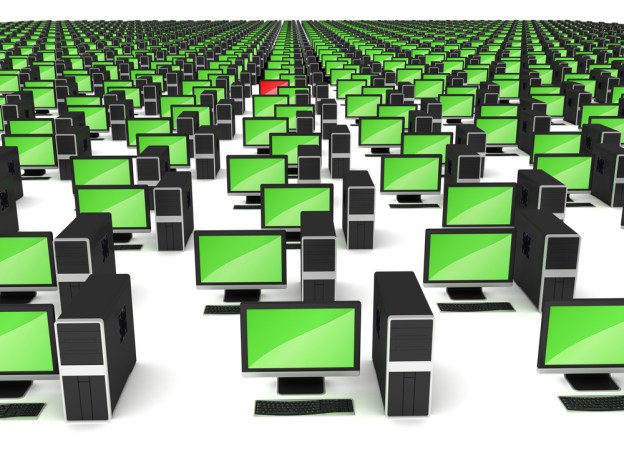
The PC market saw its first sales decline in five years during the Holiday season of 2012 due to a number of factors, including the sluggish economy and the increase in the number of mobile devices people can buy, as well as the disappointing adoption rate of Windows 8. People aren’t just going to ditch perfectly functional computers to buy news ones, especially when they’re eyeing that new iPad, Nexus 10, or Kindle Fire. Unfortunately for the PC market, research firm IDC believes that the decline in sales might continue well into 2013, even though Web analytics company Net Applications reported some growth in Windows 8 uptake.
According to Net Applications, Windows 8’s shares are growing slowly. Microsoft’s newest operating system now has a 2.7 percent share, up from January’s 2.26 percent. Windows 7 and Windows XP are still the two dominant operating systems, with shares of 44.6 percent and 39 percent, respectively. Still, it seems as if the slight increase in Windows 8 uptake won’t affect PC sales strongly, if at all. IDC forecasts that PC sales for 2013 will fall by 1.3 percent overall. The firm expects most of the decline in sales to happen within the first half of the year, and for the market to recover a bit in the second half. This ties in with a recent report that says Taiwanese suppliers are gearing up for a bad first half of the year.
IDC’s report wasn’t a total Debbie Downer, though. It also forecasts an eventual increase in sales, albeit ever so little, with single digit growth until 2017.
“The PC market is still looking for updated models to gain traction and demonstrate sufficient appeal to drive growth in a very competitive market,” says IDC’s Loren Loverde on the firm’s report. “We still don’t see tablets (with limited local storage, file system, lesser focus on traditional productivity, etc.) as functional competitors to PCs – but they are winning consumer dollars with mobility and consumer appeal nevertheless.”


